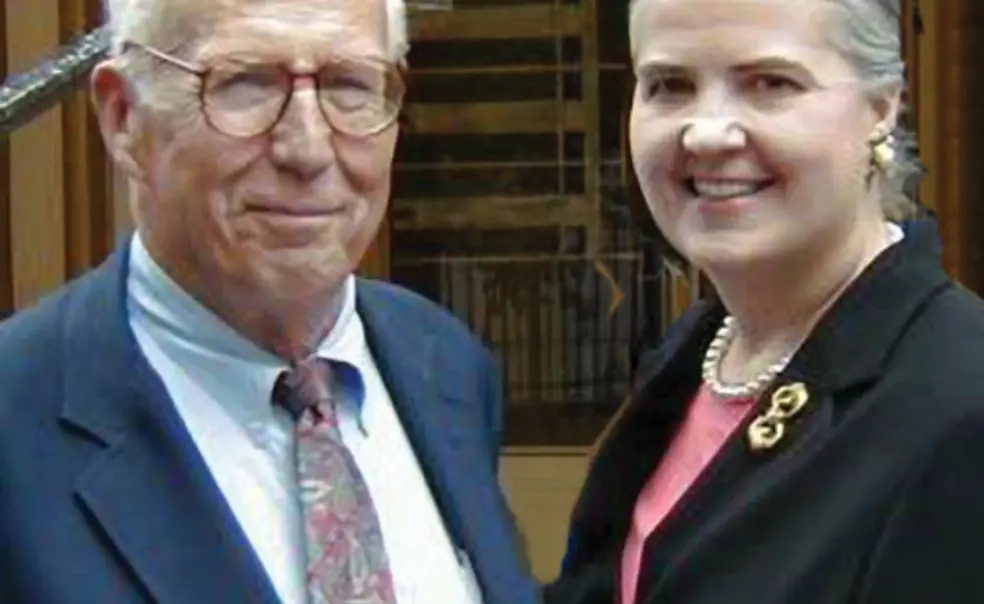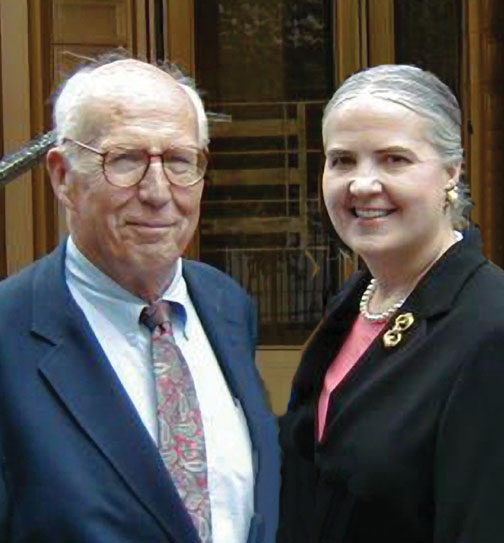Seymours bring to light improper practices in a Connecticut court
In January 2007, Gabriel North Seymour ’80 was less than three years out of law school and never had handled a criminal case. But she knew that her client’s Kafkaesque story — about a questionable theft accusation, an arraignment involving a prosecutor but no judge, and an arrest warrant for missing a court appearance no one had told him about — sounded disturbing.
In November, a federal appeals-court panel agreed, issuing a highly unusual order requiring Connecticut’s attorney general to report back on criminal-court proceedings in the small northwestern town of Bantam, in Litchfield County. “Were those allegations true, the practices would be, if not unconstitutional, likely illegal and certainly improper,” the Second Circuit judges wrote. The court order was the latest development in a continuing civil-rights suit brought by Seymour and her father, Whitney North Seymour Jr. ’45, who practices public-interest law in Manhattan. Their client, Fortunato Garcia, is a nursing-home aide who speaks little English and, at the time of his arrest, was a legal Dominican immigrant applying for American citizenship.
Garcia was arrested on Thanksgiving Day 2006, charged with stealing a wallet that he had found and turned in at the local police station. At the courthouse the next month, Garcia talked to a prosecutor but never was brought before a judge nor told he could get a public defender, as required by law. But later that day, the court clerk created an official record that falsely suggested that Garcia had attended court in person, pleaded not guilty, and heard a judge schedule his next court date.
A month later, Garcia missed a court date that no one had told him about. He was charged with “failure to appear,” a charge that, statistics show, is leveled much more frequently in Connecticut than in its far bigger neighbor, New York State. That’s when a Hispanic community leader called Gabriel Seymour.
Eventually, all charges were dismissed, but Garcia is still pursuing the civil-rights suit, which seeks $5.25 million in damages. During their depositions, the prosecutors and court clerk acknowledged that procedures followed in the Garcia case — arraignment without a judge, falsified court record — were standard practice for the Bantam courthouse, designed to speed processing of a crowded docket.
Despite the depositions, Connecticut legal officials admit no wrongdoing and deny changing procedures in response to Garcia’s suit. But they say that the practices he encountered in the Bantam courts do not occur there these days.
The case’s long-term impact remains uncertain. “Being taken to task by the Second Circuit is very unusual and much likelier than other events to have a ripple effect,” says University of Connecticut law professor Timothy Everett. But high-level judicial rulings often trickle down slowly, he notes.
Deborah Yaffe is a writer in Princeton Junction, N.J.













No responses yet